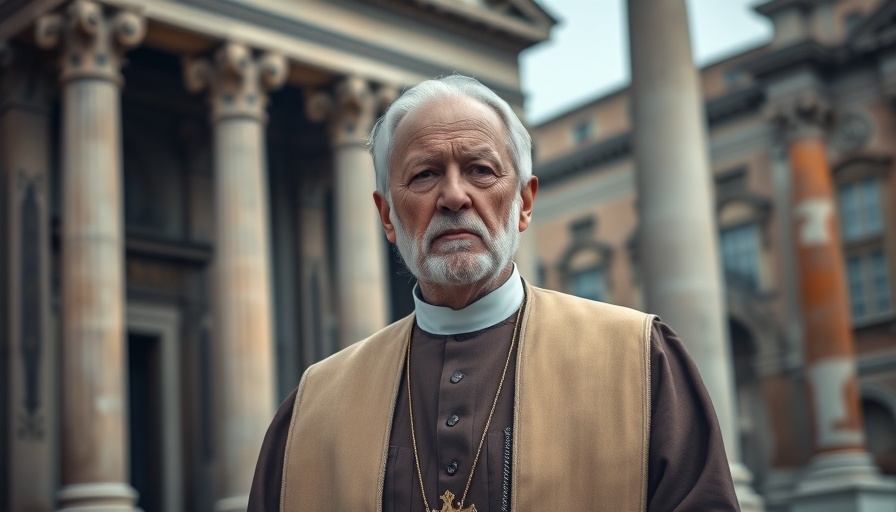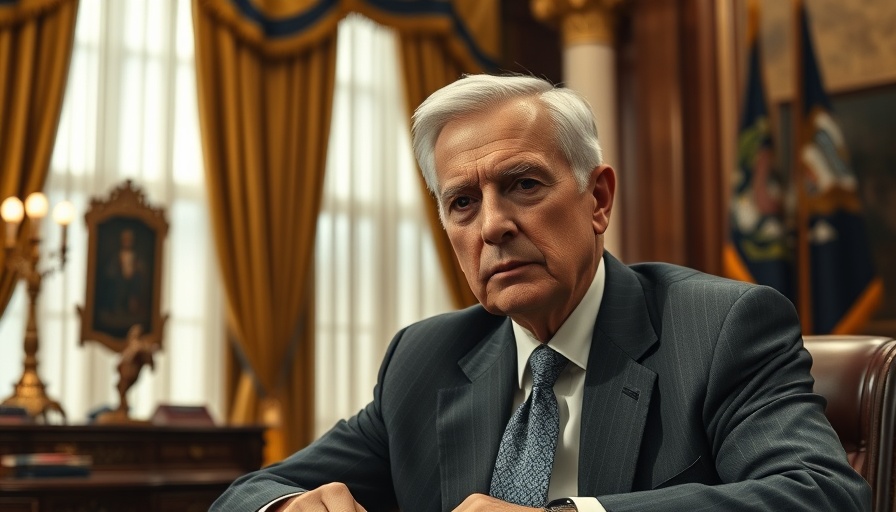
Pope Francis: A Legacy of Compassion and Joy
The news of Pope Francis' passing on Easter Monday at the age of 88 has left Catholics and people of goodwill mourning across the globe. Known affectionately as the “People's Pope,” he has had an indelible impact on the Catholic Church and its followers. His tenure since being elected in 2013 marked a historic moment as he became the first Latin American pontiff, ushering in a new era of optimism and outreach within the Church.
In 'Vatican reveals Pope Francis' cause of death,' key insights about the pontiff's life and his enduring legacy are explored, prompting a deeper analysis from our perspective.
Understanding the Circumstances of His Passing
The Vatican's release of Pope Francis' death certificate revealed that he succumbed to a combination of health complications, including a cerebral stroke and irreversible cardiocirculatory collapse, following a recent hospitalization due to double pneumonia. This event underscores the natural cycle of life, offering a poignant reminder of our fragility and the importance of living meaningfully.
A Simple Farewell: Pope Francis' Final Wishes
In his will, Pope Francis requested a simple tomb, devoid of grand decorations, with only the inscription “Franciscus.” His wish to be buried at the Papal Basilica of Saint Mary Major rather than the usual burial site at the Vatican reflects his humble nature and commitment to remain close to the people he served. As mourners gather to pay their last respects, the message he leaves behind resonates powerfully: simplicity, humility, and devotion.
The Global Mourning: A Shared Experience
People from all over the globe are coming together in shared grief. In Pennsylvania, local parishes have organized rosary prayer services, and the faithful are lighting candles in honor of the pope. Communities are connecting over their faith, sharing stories of how Pope Francis inspired them personally and spiritually. His calls for peace and unity resonate deeply as we reflect on the tumultuous global landscape today.
Pope Francis' Vision for Peace
In what would be his last public pronouncement, Pope Francis called for peace, particularly urging an end to conflicts in the Middle East and the ongoing crisis in Ukraine. His commitment to social justice and equity was evident throughout his papacy, reminding us that these issues are not just political, but moral imperatives for humanity.
The Significance of His Historical Context
Pope Francis' ascent to the papacy in 2013 was marked by a significant departure from tradition, representing a shift towards inclusivity within the Church. He has been an advocate for marginalized communities, emphasizing the need for compassion over condemnation. His legacy prompts us to reflect on how faith can act as a uniting force in today's world, particularly for younger generations seeking meaningful engagement in their faith and communities.
Future Implications for the Catholic Church
As we transition into this new chapter without Pope Francis, cardinals from around the world are convening to plan for his funeral and the future leadership of the Church. The vacancy left in his absence raises questions about the direction the Church will take. Pope Francis' vision for a more engaged and socially active Church sets the foundation for potential future leaders to build upon, as they navigate the challenges of modern society while remaining true to the core tenets of the faith.
Conclusion: Reflecting on a Special Life
Pope Francis' journey exemplified a life of service and a relentless pursuit of peace and humanity. His passing is a shared loss, yet it allows us to celebrate the impact of his short but vibrant life. As we navigate our own paths forward, embracing his legacy of love, simplicity, and hope may provide us with the strength we need in these challenging times.
In honoring his memory, let us carry forth his messages of unity and compassion into our communities. By continuing his vision, we can make strides toward a brighter future.
 Add Row
Add Row  Add
Add 




 Add Row
Add Row  Add
Add 

Write A Comment